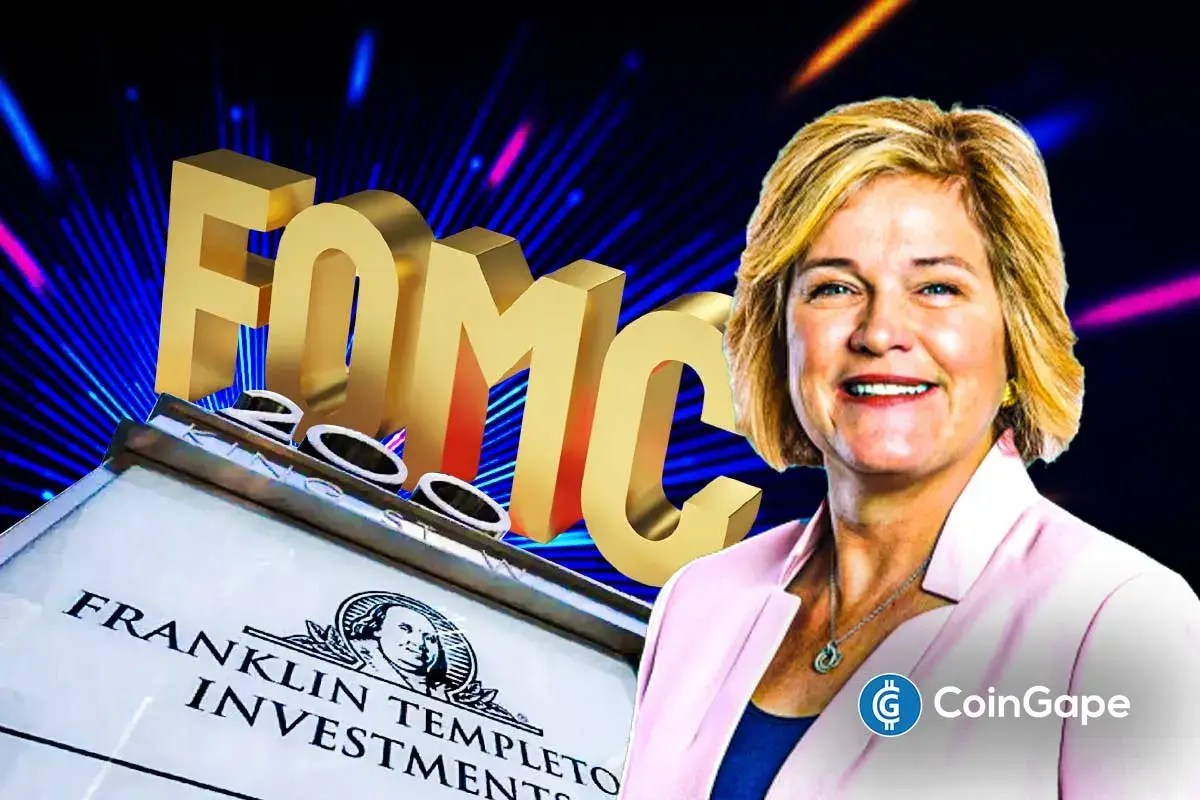In brief
- Vitalik Buterin mocked Sam Bankman-Fried and FTX onstage at Devconnect Argentina on Monday.
- The Ethereum co-founder said that the centralized exchange was everything that Ethereum strives not to be.
- Specifically, he said that Ethereum is decentralized, “can’t be evil,” and is a community rather than a company.
Ethereum co-founder Vitalik Buterin pointed to Sam Bankman-Fried’s collapsed crypto exchange FTX as the antithesis of what the blockchain network stands for: It’s decentralized, “can’t be evil,” and is a community, he believes.
The crypto billionaire took to the main stage of Ethereum’s Devconnect Argentina conference on Monday, donning a pair of Willy Wonka-inspired sunglasses as well as a wrinkled Moo Deng shirt, and ripped into the former FTX CEO.
After some brief pleasantries, Buterin flicked onto the first slide of his presentation with Bankman-Fried’s face and a previous quote from the imprisoned crypto mogul, saying, “I’m in on crypto because I want to make the biggest global impact for good.”
Vitalik Buterin onstage at Devconnect Argentina 2025. Photo: Decrypt“FTX… I think it’s a perfect example of what you do if you take Ethereum’s principles and then literally rotate them 180 degrees,” Buterin explained. “So, Ethereum in one sentence: It’s not whatever this is,” he said, gesturing to an image of Bankman-Fried on the screen.
The Ethereum co-founder went deeper into his comparison. Most obviously, FTX was a centralized exchange, while Ethereum is being built with decentralization as a core principle. Buterin explained that this centralized nature was core to FTX’s failure, as it required the public to blindly trust the exchange without insight into its internal workings.
As for Ethereum, development is conducted via incremental upgrades that are proposed, scrutinized, and developed by the community—all out in the open.
Decentralized exchanges have surged in popularity this year, partly for this reason. Hyperliquid, for example, was created in the wake of the FTX collapse as the founder, Jeff Yan, believed the industry had a tangible reason to no longer trust centralized exchanges. Distrust in centralized exchanges has only continued with data leaks, hacks, and mismanagement, prompting users to look elsewhere to trade crypto.
Buterin believes that FTX opted for a “Don’t be evil” motto, an ethos adopted by Google in its early days. Again, this approach requires the company to be trusted not to do something bad.
“The point of decentralized technology, the point of blockchains, is that you do not have to trust them,” Buterin said, claiming that Ethereum simply “can’t be evil” as a result of decentralization.
FTX was a major centralized exchange that secretly gave billions of dollars of customer funds to Bankman-Fried’s trading firm, Alameda Research, to shore up vast trading losses.
As a result, the FTX and Alameda Research founder was sentenced to 25 years in prison on seven counts of fraud, money laundering, and conspiracy. While creditors have been repaid billions of dollars’ worth of investments, the collapse remains a black mark on the crypto industry—one that led to wider contagion across platforms, and substantial losses.
Ultimately, a major difference to Buterin is that FTX was a company, while Ethereum is a “community.”
“The difference between a company and a community is that a company is a hub-and-spoke structure; there is a thing at the center that does stuff and collects money,” he explained. “A community is a very large number of people that are all doing things for each other.”
To Buterin, Ethereum is a decentralized community of crypto lovers that is slowly nurturing a credibly neutral technology. FTX, on the other hand, was a centralized company being steered by a few powerful figures that asked the public to trust it not to do evil, but ultimately did.
Ethereum was on the rise earlier this year, breaking a four-year-old price record in August and topping out just shy of the $5,000 mark. But it’s been a rough couple months since then, with ETH since dropping by 39% and falling below the $3,000 mark Monday for the first time since July.
Daily Debrief Newsletter
Start every day with the top news stories right now, plus original features, a podcast, videos and more.
Source: https://decrypt.co/348991/ethereum-opposite-sam-bankman-fried-ftx-vitalik-buterin-says



